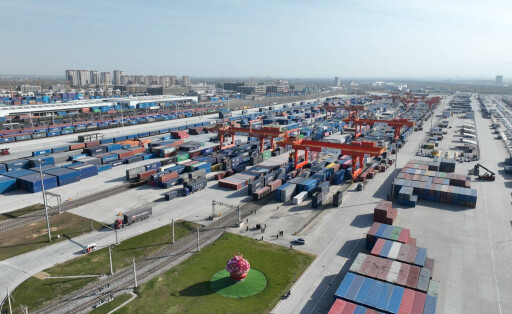
Hanoi und Peking wollen engere Sicherheitskooperation
China und Vietnam wollen enger zusammenarbeiten. Laut einer gemeinsamen Erklärung umfasst die Kooperation vor allem auch Sicherheitsfragen.
Von Fabian Peltsch

China und Vietnam wollen enger zusammenarbeiten. Laut einer gemeinsamen Erklärung umfasst die Kooperation vor allem auch Sicherheitsfragen.
Von Fabian Peltsch


China's Foreign Minister Wang Yi has spoken out in favor of a two-state solution for Israel in a telephone conversation with his Iranian counterpart.
Von Fabian Peltsch

Chinas Außenminister Wang Yi hat sich in einem Telefonat mit seinem iranischen Amtskollegen für eine Zwei-Staaten-Lösung für Israel ausgesprochen.
Von Fabian Peltsch


Sechs Provinzen haben wegen geschönter Statistiken eine Rüge aus Peking erhalten. Das Nationale Statistikamt forderte sie auf, besser gegen Datenfälschungen vorzugehen – und darüber einen Bericht vorzulegen.
Von Fabian Peltsch

Six provinces have received a reprimand from Beijing for falsifying statistics. The National Bureau of Statistics called on them to take better action against data falsification – and to submit a report.
Von Fabian Peltsch


